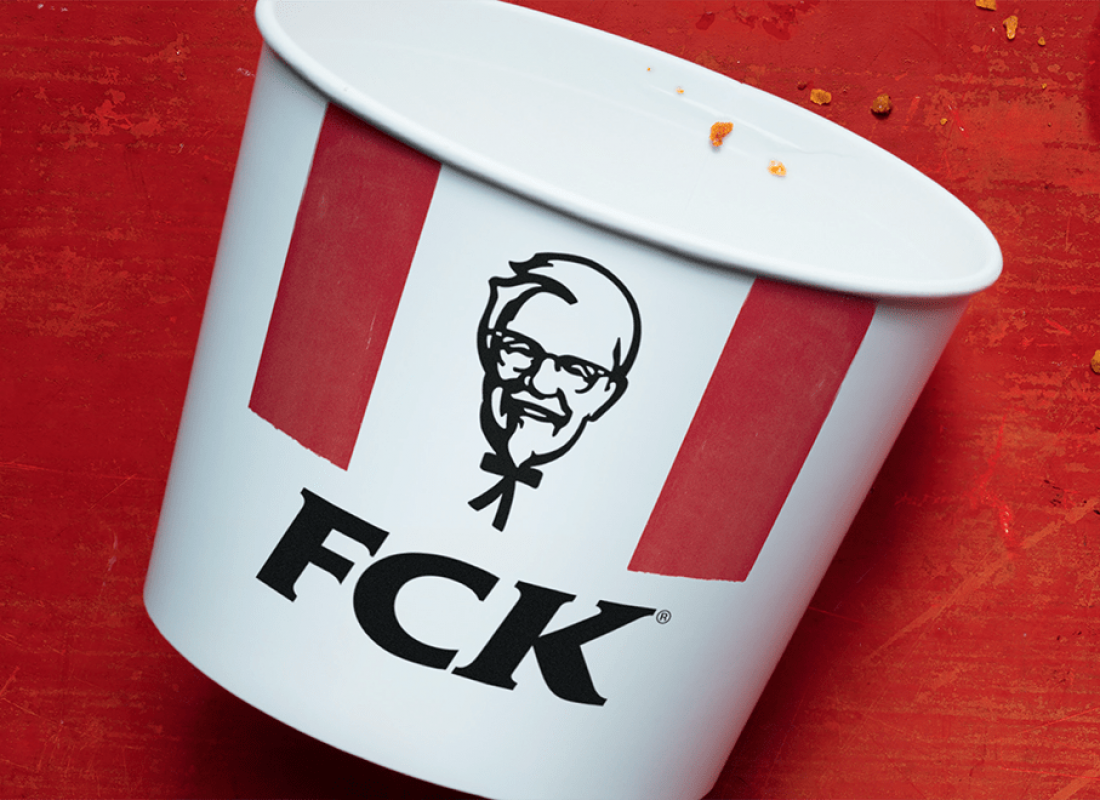Everybody makes mistakes, and brands are not the exception. However, it’s how they make amends or apologise that matters in the end.
A successful campaign or statement can save a company’s reputation, protect its relationship with clients and turn the conversation from negative to positive.
This week, KFC had to close 800 of its stores in the UK due to the lack of chicken (seriously), as a consequence of some delivering difficulties.
How did the fast-food company apologise for the inconvenience? With an eye-catching full-page ad in British newspapers that read “a chicken restaurant without any chicken. It’s not ideal. Huge apologies to our customers.”
The ad included an empty bucket with the brand’s initials cheekily misspelled as “FCK” to show that, regardless of their mistake, KFC doesn’t take itself too seriously.
This incident got us thinking about other brands that had to say “sorry” to their customers. Let’s take a look at two businesses who apologised with style!
Domino’s
One of the riskiest and most surprising “sorry” campaigns ever involved Domino’s Pizza acknowledging Social Media complaints about the flavour of their products, promising to improve it.
The video campaign featured Domino’s employees reading things like “totally void in flavour” and “tastes like cardboard” about their pizza, showing they were aware of what their customers were saying. At the core of the campaign, Domino’s announced they would be serving an all-new flavoured pizza, letting the viewers know how they were making improvements based on their customer’s critiques.
Admitting their wrongs was a successful move for the business because it showed the clients how much their opinions matter, all while creating expectations for the new product. Double win!
Airbnb
Back in 2015, the house-sharing platform faced controversy in regards of racial discrimination on its site where according to Harvard research, people with names associated to African-American heritage would be 16% less likely to be accepted as guests..
To make amends, Airbnb published a statement to announce they would make adjustments in the platforms to keep it open for all races, making users agree on a detailed, nondiscrimination politic.
Later on, the company reinforced their message with a commercial that was aired during the 2017 Superbowl. The campaign showed people of different colours, ages, genders, and backgrounds with the emotive message of #WeAccept.

However, some brands have built campaigns around the word “sorry” without having a reason to apologise. Some examples are:
Durex
Have you ever said “sorry” without really meaning it? If the answer is yes, you are not alone!
Durex got people talking in 2015 by “apologising” for the low birth rate in Singapore, assuming all the responsibility in a false full-page ad that was supposed to look like a newspaper. The tongue-in-cheek “letter” showed the company offering excuses for the “efficiency and convenience” of their products and the impact they had on Singapore’s population.
Even though the ad was never actually published in a newspaper, it still got a lot of hype on Social Media and made the brand the centre of attention, which was their ultimate goal.

Pantene
Pantene, known for hair products, launched a video campaign under the name #ShineStrong to prevent women from apologising when they shouldn’t.
In the campaign, the brand argues that women say sorry more often than men for things like asking questions, walking past someone on a busy sidewalk and other mundane, daily habits. The commercial also shows how these situations would look like without saying sorry, empowering women to stop apologising for what they deserve just as much as men, promoting a clear message of equality.

Meanwhile… KFC still don’t have any gravy, they’re blaming it on the stock market.




